Do you know what you desire in life?
Most people, unfortunately, don’t know what they really want in life until their time in this world is close to an end.
Too many people live their best years doing things of no significance. They’re living a life they dislike and routinely doing the things they’re complaining about.
They live but not alive. As someone puts it, “Most people die at twenty and are buried at eighty.” There’s a truth in that statement.
Why is it often difficult to know what you want?
To be fair, it’s not always easy to answer such a question. People tend to doubt when asked some decisive questions about their life. They’re uncertain if what they’re thinking is the right thing.
One of the reasons why we don’t know what we want is that we naturally don’t like to have disappointments. No one is thrilled about being wrong.
Many people feel “safer” to just be unresolved about things, especially about the big questions of life, instead of trying to know and turn out to be wrong about it. Therefore, when your expectations of life do not come to pass, you won’t need to go through the disappointment, embarrassment, and even hurt. You just accept it as your fate, something you can’t change and do anything about.
Some people also think that they would be happier if they just let themselves afloat on the big ocean of life and let the flow decides where they should land. If there’s no expectation of life, so their theory goes, then there won’t be any disappointment, right?
But think about it. What if you end up in the place you don’t like? Wouldn’t that count as a disappointment also? So, being doubtful about what you want in life is not the way to avoid disappointments. You still can be disappointed either way.
Not knowing where you want to go is, actually, in itself a downside. It’s hard to make sense of what you see going on around you if you don’t know where you are and where you’re going. You can’t really anticipate if you don’t know what’s coming.
Moreover, if you don’t have any idea which way to go, you risk wandering around and end up somewhere you don’t intend to be. As Yogi Berra once said, “If you don’t know where you are going, you might wind up someplace else.”
The benefits of knowing what you want.
There are definitely some upsides in knowing what you want. We’ll list just a few here.
First of all, it gives you a sense of purpose and meaning in life. If you have clarity on what your desires are, you will get up every morning, at least knowing there’s something to pursue in life. Something you want to make happens. It creates visions and goals that you want to achieve. You will become more driven, and life becomes more exciting as a consequence.
Second, knowing what you want makes life simpler. It narrows down your options. Life’s a journey, and you’ll find forks along the way. If you know what you want and where you’re going, it’s easier to decide which fork to follow. It simplifies your decision-making process and makes it easier for you to say “No” to the things you don’t want.
Third, knowing your desires in life will tremendously improve your self-confidence and reduce doubtfulness. When you’re less doubtful and have more sense of certainty about things, that will put you in control of your own life, and boost your self-esteem. Those who live in constant doubt should not expect to achieve anything in life. They’re just like a wave of the sea, driven by the wind, and don’t have any control of its own direction.
What influences our mind.
To discover our desires, it will help first to understand the influences that affect the working of our mind.
Our mind is mainly guided by three working parts when it comes to thinking and decision making: intellect or logic, emotion or feeling, and faith or belief system. Our intellect governs our logical thinking, the emotion controls what we feel, and our faith shapes our conscience and what we believe.
All three components play essential roles in our thinking and decision-making process, although one might play a more dominant role than the other in different situations. How these three interrelate with each other depends on many factors and may be unique for each person.
Many different elements from various facets of our life may also influence all these three divisions of the mind, i.e., our intellect, emotion, and belief, and try to pull them in many directions.
The problem comes when those influences create potential conflicts between what you think, what you feel, and what you believe. When your thoughts, feelings, and beliefs are pulled in different directions, it is tough to settle with a coherent understanding of what you want. You’d be wavering and be in constant doubt and inner conflict. Making a decision will be an excruciating experience.
Overcoming the conflict of our mind.
Let’s see, for example, a man who thinks money is the cause of all problems. Yet, deep inside, he feels tired of being broke and would love to have some of that hard cash to improve the quality of his life and his family. At the same time, he has this belief that all rich people will end up in a fiery place called “Not Heaven.” What do you think this conflict between his thought, emotion, and belief will do to his state of mind?
Such a person will find it hard to become wealthy himself if the conflict in his mind is not resolved. Although in time he may accumulate some wealth, he won’t keep it for long, because it will become a source of burden and discord in his life.
Meditation, reflection, and prayer are mechanisms that can help to resolve the inner conflict of the mind and make the thoughts, feelings, and beliefs, be in-sync, and in agreement with each other.
If your intellect, emotion, and belief are in harmony with each other, you’ll find inner peace within yourself and a genuine conviction about the things you desire.
When that happens, it would no longer matter what other people say about it. To you, it’s become a calling of your life and your destiny to make sure that you will have what you want.
With such clarity, conviction, inner peace, and faith about the things you desire, its fulfillment will just be a matter of time.
The discovery process.
To know what you want in life, first explore your options from all perspectives, intellectually, emotionally, and spiritually.
Investigate all the possibilities and choices that you have.
Explore intellectually, with your head, if you will, what are the things that will objectively make your life better. What kind of educations will be best for you? What type of jobs, business, and career that will give you the best income to sustain the best lifestyle that you want? Which particular design of house, car, lifestyle, and other possessions you aspire to accumulate? When and what kind of a family do you want to start? Etcetera, and so forth. Ask and listen to the feedback and advice from your parents, family, friends, mentors, and other people around you that are of importance to you.
Analyze your options from the emotional perspective, listen to your heart, and identify the things that you’re most passionate about. What would you like to be doing, even if you’re not paid for it? What gives you joy whenever you’re doing it? What keeps you energize and feels good about doing it? Gauge your feeling and be honest about it.
Also, search and inquire for any spiritual or higher calling that you believe you’re called to do. What things would you be willing to do even if it means you’ll have to make a lot of personal sacrifices? What attracts you that you’re eager to do even when you personally gain nothing from it? What do you think God’s plans for your life are? Pay attention to your conscience and pray about it.
Make a list of options as a result of the intellectual, emotional, and spiritual exercises you’ve done above. Then narrow it down to a select few.
Write down the options which give you the sense of inner peace most consistently, from intellectual, emotional, and from your belief’s perspectives.
Those few selections are the best candidate to represent what you really want in life, your desires, your calling, and your destiny.
Evaluate and iterate.
Life changes. Circumstances changes. Needs changes. In fact, the only constant in life is change.
So, don’t be afraid to change, adapt, adjust what you want in life accordingly as your situation changes. Your desire is not set in stone. You can modify, upgrade, or even abandon it altogether for something better as your life progress.
Always evaluate whether the things you wanted are still the things you desire and iterate the whole process if need be.
Conclusion.
Knowing what you want and understanding what your desires are is foundational to achieving any success in life.
Napoleon Hill, the author of the must-read classic “Thinking and Grow Rich,” place “Desire” as the starting point of all achievement and the first step toward riches.
If you don’t know yet what it is that you want in life, then invest some valuable time and effort to have that clarity about your desires.
When you have a burning desire, then it’s just a matter of time to see it materialized in the reality of your life.



